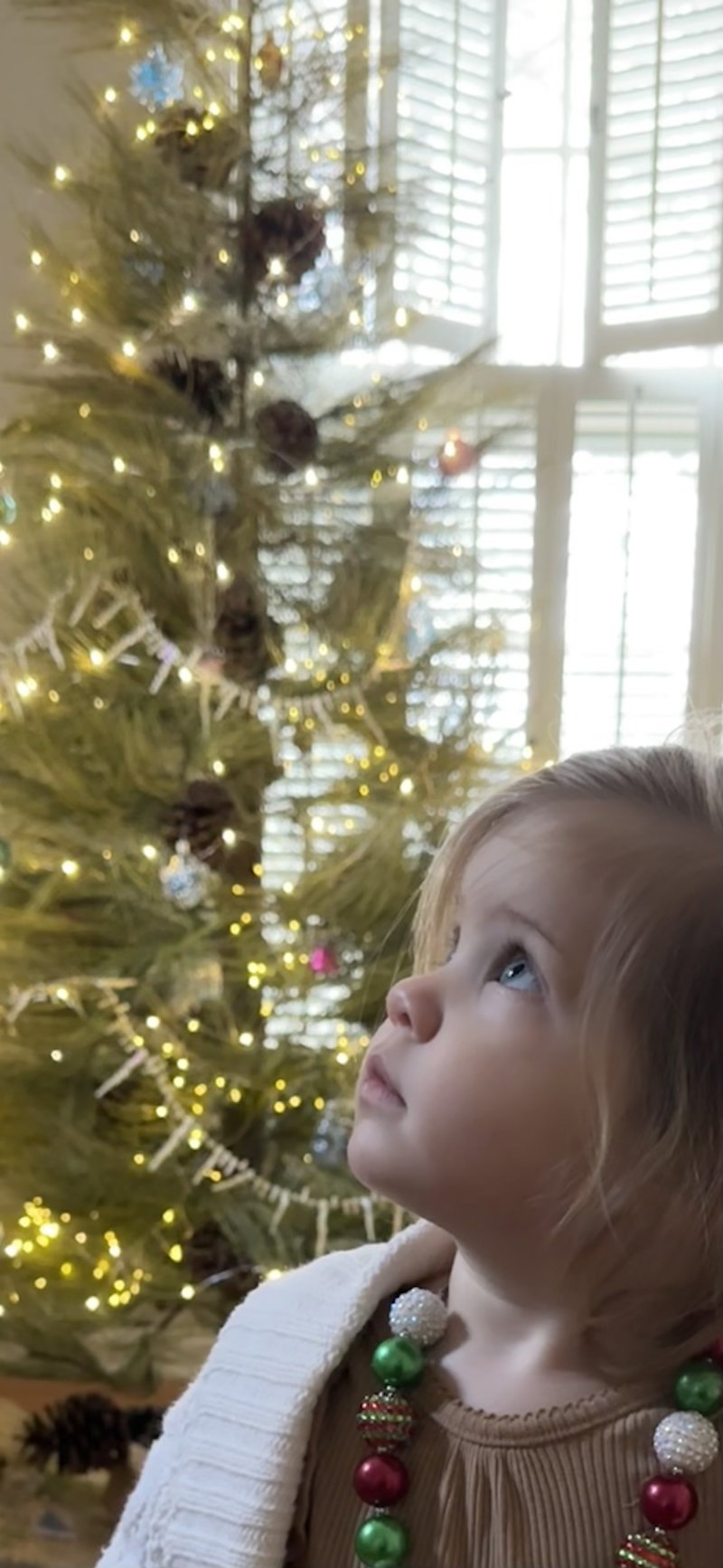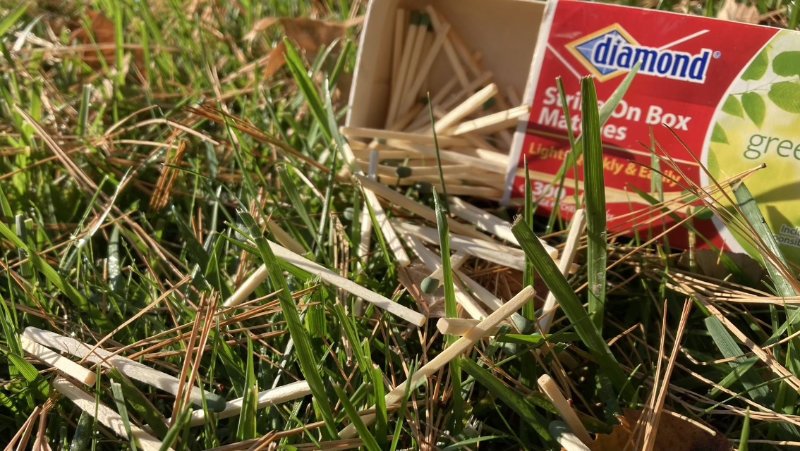I used to love to listen to a radio program called Car Talk on National Public Radio. If you remember the show, you’ll remember the two mechanics, the Click and Clack brothers, who took calls from people who had car problems, but it was their brand of humor and mix of ridiculous advice that made their show fun. I always grinned at the end when they signed off saying: “Well, you’ve done it again – you’ve wasted another perfectly good hour listening to us.”
And now, as 2023 begins to fade into history, DESPAIR NOT! TAKE HEART! This next eight minutes and ten tidings list will be a well-spent way to ramp up your seasonal spirit and keep you off the naughty list! Like last year’s episode (Dec. 8th of ‘22) I’m going to dazzle you, not with information about your car, but a couple of great ways you can navigate through the winter wonderland with an admirable amount of aromatic good cheer! So, put on your Buddy the Elf stocking cap and pull a piece of chewing gum off the sidewalk. There’s a gumdrop forest to find and not a minute to waste…here we go!
Tiding #1: MUSIC! Hey! You gotta have good tunes pumping out to get your sugar plums moving this season. Here at the Blunder residence, we are big fans of comedian Steve Martin, with his off-beat skits and catchy banjo playing. On his last album he joined the Steep Canyon Rangers in a tune called “Strangest Christmas Yet,” which is kind of like hearing a music version of Christmas Vacation with Chevy Chase. All the members in your family are represented here in this wacky holiday song, including the ones who always park on your lawn and hook up to your water meter. So, get out your moose mugs and belt out the lyrics with the whole family.
Tiding #2: Speaking of movies, it seems we’ve all seen about every Santa Claus movie possible. I mean some of these titles really scrap the bottom of the barrel with absurd titles such as Freddy Krueger Claus or how about this one – Mission Impossible: Ghost Protocol Santa. But when all is said and done, the Christmas movies that really get to us are the ones that leave us are less feeling hopeful and full of wonder. So, I’m recommending going off the grid and watching a movie like Forrest Gump or Apollo 13. They’ll make you cry it forward and rise to your better angels.
Tiding #3: If you don’t have someplace to be on Christmas Eve, I highly recommend going on a Moon Walk. This is the basic one foot in front of the other kind of walking, not the Michael Jackson kind, and you’re taking the steps by good ol’ fashioned moonlight. Not only will the cold be invigorating, but the silence will overwhelm you like a whiff of Vic’s VapoRub. As you look up into the heavens, the night sky will bring back all those memories of being a kid when you believed something magical was up in those stars, something that might just change the whole world. Grab your mittens whether you need them or not, and another person, whether you need them or not, and take a Moon Walk among the Christmas stars. There’s one out there just for you, and there is one special one that was given to all of us.
Tiding #4: One of the very best gifts you can give everyone this time of year, plain and simple is the gift of your sense of humor. Watch your words, keep the griping to a minimum, and be flexible. Maybe let go of a dusty old tradition. Keep things fresh, and if you don’t get everything done, remember it’s not about doing, it’s about the gift we’ve been given. Wrap yourself around others, not yourself. As a wise person once said, “A person wrapped in themselves makes a very small package.” It’s especially true at Christmas.
Tiding #5: Get up off the couch, get out the art box and build something together as a family on Christmas day. Work on a puzzle, make space hats out of tinfoil, or carve ice cube under hot faucet water. When we were kids my brother and I got a homemade shortwave radio kit for Christmas. We soldered it all together, wires and all, and hung the antennae up in our gum tree. Then we spent the rest of the day talking to a man who was hunting moose, possibly reindeer, somewhere in the Canadian wilderness. Building, inventing or designing – they all help to kick in our happy holiday endorphins – and like my grandson says, do it “togever.”
Tiding #6: This next one may break your pocketbook, but what the heck, it’s just money, right? On Christmas night, when everyone is exhausted, pre-arrange a stretch limousine to come by and pick everyone up to go look at Christmas lights. Yea! Fill up your Stanley’s! Pile in! Let a _chauffeur take you over the river and through the woods. In our case, that would mean going over the Ohio River into Henderson, Kentucky and then through Audubon Park, which would be a $500 fine. Oh well! It’s just money! Stretch out, take a nap! When was the last time you fell asleep behind the wheel? Put a lid on worry and another dollar in the meter! Ask the chauffeur to put on Knee Deep and say More Please, and then tape yourself and send it to me for a prize!
Tiding #7: Every Christmas season I always wish I would have given more people some small present, even something very small, like an apple, just to rev up their smile and warm their spirits for a moment. Have your kids or grandkids help you decorate a wagon with wild attention-seeking lights. Fill your wagon with the 432 different types of apples available, and hand them out between services at your church. Call it the Homeless Apple Project, shake up the sanctuary with random acts of lawless apple-givers. Let’s get this kick Apple Project Party started, and make sure no apple goes home alone.
Tiding # 8: When I was a kid…excuse me…when I was younger, my mom would make something called Yorkshire Pudding for our Christmas dinner. I’ve never made it, and the recipe is long since been misplaced, but that pudding was something out of tastebud heaven. Try Gordon Ramsey’s recipe, which is rated five stars. You will like it because he will put the Yorkshire smackdown on you if you don’t, and I’ve seen him do it. I cannot even describe how good this bread-ish pudding Danish roll-thing is, and for me to say that as a writer, well, is to admit defeat at the hands of a dish that is supernaturally mouthwateringly scrumpdillyocious times pi over infinity plus butter DYNOMITE DELICIOUS.
When my mom made it, she used the beef drippings from the rotisserie roast, and she followed some very detailed directions about baking. Apparently, there is a certain point at which Yorkshire Pudding is very light and delicate and can collapse easily, so we weren’t allowed within a city block of the kitchen for fear my brother would trip me and my fall would flatten the whole concoction. It may be time to use this recipe as an excuse to kick everyone out of the kitchen, very carefully, while you become one with your Yorkshire.
Tiding #9: Have you ever been singing a song in church, or anywhere and somewhere behind you has the voice of an angel? Well, I can assure you, itain’t mine. When I sing, my wife gently taps my knee. That is my sign to stop singing immediately. I have that special talent of being able to absolutely ruin a perfectly good Christmas song in E flat or E minor, take your pick. So just for laughs, call my number, (812) 479-8264 and listen to my Christmas message,** take pity on me as I sing about chestnuts roasting, and try to be serious. I dare you. I double-dog-barking a-mile-away dare you!
Tiding # 10: Prepare for the aftermath. Everyone gets a bit down at Christmas. There are moments we remember Christmases of the past and feel moody or subpar. There are moments when our expectations may have outweighed the reality that people are human, they are messy, they are late and pushy and so forth. Today, for example, I had a lady yell at me for blocking traffic, so I rolled down my window and tried to sing her a round of Joy to the World, but…well, you know, there’s that issue with me holding a tune…
Still, I think Christmas can be a time filled with too much filling, and then we get crusty on the edges and fall apart. All any of us really want is to be accepted, right? One Christmas we will get it all perfect, when we’ll remember that compared to the birth of Jesus, everything else is just noisy traffic. So, open the lane, let people in, let that old screaming Grinch through. That is the day your heart grew three sizes too big, true, but it will also be the day when you remember why you were given a heart.
Merry Christmas my more please loyal listeners! It’s not the night before Christmas, but it’s getting clooose!






















